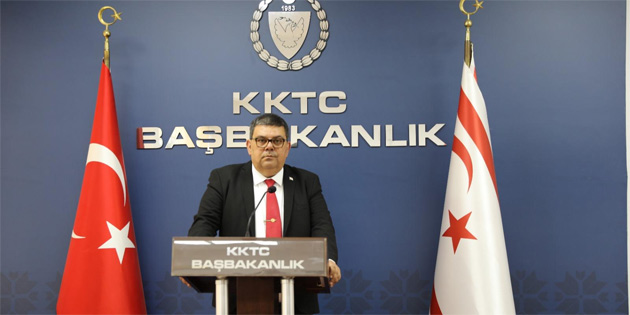The north’s ruling coalition on Tuesday night for the second time legalised the wearing of hijabs by children at public schools in the north.
Following a cabinet meeting, ‘government’ spokesman Ozdemir Berova explained that at middle schools, the decision over whether the wearing of hijabs would be allowed would rest with the schools’ administrations, but that at high schools, girls are allowed to attend wearing hijabs.
The new regulations state that the school uniforms themselves “cannot be covered up in any way”, thus precluding the wearing of a chador, as one pupil at Trikomo’s Bekirpasha high school attempted to do last month.
Berova added that the north’s ‘education ministry’ will now “determine the colour, shape, size, and patterns of certain clothes which will be compatible with the school uniform”, and that the ‘ministry’ would then send a circular to all public schools in the north advising them of the new regulations’ details.
The new regulation immediately appeared in the north’s official gazette.
However, the teachers themselves were less than willing to comply. One girl entered Trikomo’s Bekirpasha high school wearing a hijab on Wednesday morning, and as such, her teachers refused to teach her classes.
The decision came as an estimated 13,000 Turkish Cypriots took to the streets of northern Nicosia to protest against the change, with high-profile figures from across the Turkish Cypriot political spectrum in attendance.
Cyprus Turkish secondary education teachers’ union (Ktoeos) leader Selma Eylem addressed the crowds at the end of the protest, telling demonstrators, “we have filled the squares once again to say ‘no way’ to the hands which reach out to try to grab our will, our secular society, our schools, our girls, our women, and our future”.
“Society’s will is here. To the government which made this decision, you no longer represent this society. Resign! … We will not recognise your regulation or you! Go away, already, go away!”

The ruling coalition had initially legalised the wearing of hijabs in schools midway through March, but following a strong backlash from staunchly secular Turkish Cypriot teachers, among others, withdrew amendment a week later.
Teachers were keen to show their displeasure at the amendment and their view that the Turkish embassy in Nicosia had played a role, with some even believing it was put down to deliberately sow division in Turkish Cypriot society.
At the protest, Eylem called on ambassador Ali Murat Basceri to “go home”, with footage of her speech now having gone viral in Turkey, where political tensions are heightened for separate reasons.
Tatar had demanded that legal action be taken against teachers who “disturbed our peace” during the protests, saying that he would meet with Turkish Cypriot police chief Kasim Kuni and chief public prosecutor Sarper Altincik and “request that legal steps be taken”.
On Thursday night, Tatar had been forced to deny that a meeting he had held with Turkish ambassador Ali Murat Basceri and the north’s ‘prime minister’ Unal Ustel was called over the matter of hijabs.
![An estimated 13,000 Turkish Cypriots gather in Nicosia on Tuesday evening [Photo: Tom Cleaver]](https://cyprus-mail.com/wp-content/uploads/2025/04/WhatsApp-Image-2025-04-08-at-21.13.25-2.jpeg)






Click here to change your cookie preferences